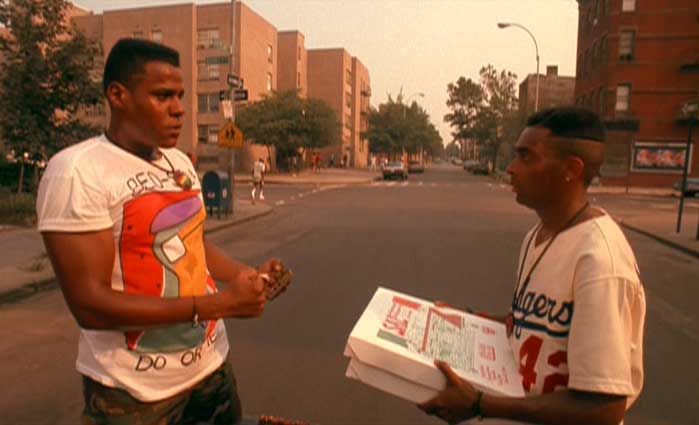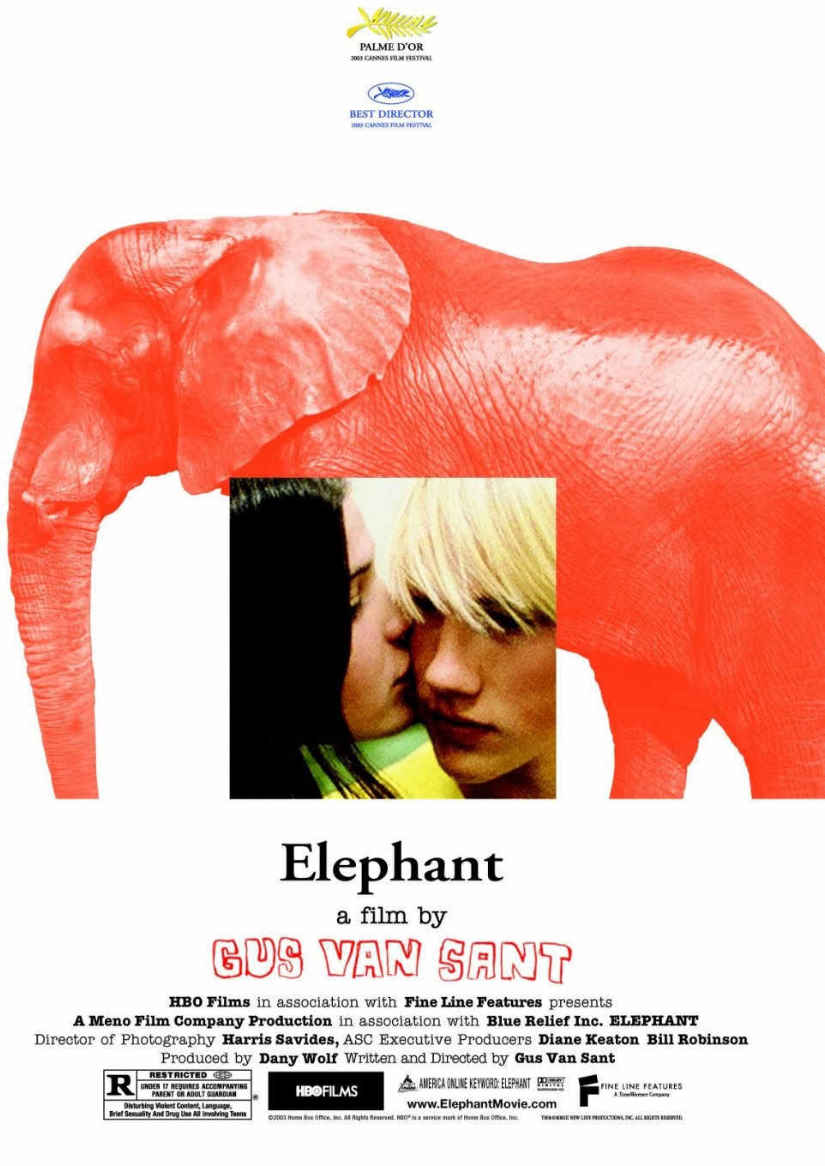
What a beautiful movie. What a wonderful classic! I really enjoyed this film. I've tried to watch it twice before and I just couldn't get into it. I was pretty disappointed though because it was supposedly an AMAZING classic that everyone loves. I had high expectations. This time, in Art of Film, I was forced to watch it. Turned out to be a good thing. I suppose I had lower expectations but that doesn't make this movie any less beautiful. It was so full of moral conflict and compromise, making the decisions Rick was often faced with that much harder and his decisions that much more powerful. This movie was as much an allegory of the time as it was a story. The more I think about it, the more intricate the allegory becomes. I'm not that highly educated about World War II so I had a little trouble drawing all the parallels, but when they were pointed out they were that much more amazing. I must say though that I valued this movie much more for its beautiful love story and the honor and devotion that was constantly showing through every aspect of this film. My favorite part of Casablanca was easily the end. It was so perfect really. The entire movie was really encapsulated in these final seconds of Casablanca. Ilsa leaves Rick, again, perhaps for the last time, he talks about letters of transit, and money, and the weather exudes the theme of the film, that gloomy, upsetting mood which kind of resonated through out the film, or at least obvious aspects of Rick's personality. It seems to be a revolutionary realization for Rick that he needs a friends, that alcohol and women and money can't fill his "whole." That quote: "This looks like the beginning of a beautiful friendship."
Final scene: http://www.youtube.com/watch?v=Q0_S2J9c2H4



 subtle way. In learning this I also learned that Mathieu Kassovitz used the techniques of other directors. After just watching a Spike Lee film I could see some techniques borrowed from him (zooming into an object and dutch angles just to name a few). There are a few really pointless things that go on in La Haine, they are mostly stories that people are telling to Said, Vinz, and Hubert. The actual meaning of each story has utterly no point, but that's the point. Mathieu Kassovitz puts this pointlessness into the air to show off the meaningless life these people of the ghetto lead. For me, La Haine is so much more about the cinematography than it is anything else. There is no real solid, cohesive plot line, but that's kind of the beauty of it. There is a tremendous political meaning to this film. At the time it was made there were many riots in Paris about the death of a young man, he died due to police brutality, so consequently this film kind of has an underlying anti police sentiment. Perhaps you wont be able to understand what I'm about to say unless you've seen the movie, but it should be said. Mathieu Kassovitz does not want people to have the underlying feeling that all black people are drug dealers, that's why he makes it very blatant that some black characters in this film do not touch drugs. He attempts to do the same for police men. He does not want the viewer to come out of this film thinking all police men are "pigs," that's why he places two very obviously good police in the film. There is so much more I could say about La Haine. I could go on and on about how beautiful and innovative it is, but I will not, partially because I really can't do this movie justice and partially because this is getting too long. I will instead encourage anyone who craves something different to see this masterpiece.
subtle way. In learning this I also learned that Mathieu Kassovitz used the techniques of other directors. After just watching a Spike Lee film I could see some techniques borrowed from him (zooming into an object and dutch angles just to name a few). There are a few really pointless things that go on in La Haine, they are mostly stories that people are telling to Said, Vinz, and Hubert. The actual meaning of each story has utterly no point, but that's the point. Mathieu Kassovitz puts this pointlessness into the air to show off the meaningless life these people of the ghetto lead. For me, La Haine is so much more about the cinematography than it is anything else. There is no real solid, cohesive plot line, but that's kind of the beauty of it. There is a tremendous political meaning to this film. At the time it was made there were many riots in Paris about the death of a young man, he died due to police brutality, so consequently this film kind of has an underlying anti police sentiment. Perhaps you wont be able to understand what I'm about to say unless you've seen the movie, but it should be said. Mathieu Kassovitz does not want people to have the underlying feeling that all black people are drug dealers, that's why he makes it very blatant that some black characters in this film do not touch drugs. He attempts to do the same for police men. He does not want the viewer to come out of this film thinking all police men are "pigs," that's why he places two very obviously good police in the film. There is so much more I could say about La Haine. I could go on and on about how beautiful and innovative it is, but I will not, partially because I really can't do this movie justice and partially because this is getting too long. I will instead encourage anyone who craves something different to see this masterpiece. 
 I have wanted to see this movie for quite some time, and after hearing so much about it I knew the summary on the back of the DVD case couldn't do it justice, so I decided to finally see it. I was glad I finally did. In short, I was rendered speechless after this film. Everything oozed with perfection: the soundtrack, the cinematography, and of course, the story. What a beautiful story. It was so moving. I was in tears for most of the movie, and when it comes to movies it takes a lot to make me cry. It is undeniable that I was deeply influenced by this film. There was one part where Jean-Do explains the remorse he has for not loving his children more and for not being kinder to their mother. I was kind of jolted at these words because I noticed that anything fatal could happen at any time. To anyone. I am often one who takes it all for granted, treating people however the hell I want to. And in retrospect it isn't right, that's obvious. But when there's that chance that you could be ripped away from everything so quickly, unable to make a menze it's scary, and potentially very real. The first, I'd say 15 minutes of this film were shot through the eyes of Jean-Do. How brilliant! I felt a bit anxious because of my inability to see everything. I imagined that Jean-Do felt quite similar to that, I'm sure he felt inhibited and anxious because of the confusion so prevalent in the opening scenes. A most powerful part of this film was when there was a montage of pictures of Jean-Do from all different aspects of his life. They portrayed him as this lively human being, bursting at the seem to live and experience all he could. Then it's his current face, a face permanently distorted. No more expression to be seen there. It was devastating but powerful and harsh. It was so painful to see such a young being destroyed at the prime of his life. But to say he was destroyed would sacrifice much of what he did, so perhaps he was merely inhibited from pursuing his life to the fullest extent. It is incredible that this man wrote a book. It goes to show that despite his body being a complete vegetable, his mind was bustling with thought and beauty of imagination. Remarkable really.
I have wanted to see this movie for quite some time, and after hearing so much about it I knew the summary on the back of the DVD case couldn't do it justice, so I decided to finally see it. I was glad I finally did. In short, I was rendered speechless after this film. Everything oozed with perfection: the soundtrack, the cinematography, and of course, the story. What a beautiful story. It was so moving. I was in tears for most of the movie, and when it comes to movies it takes a lot to make me cry. It is undeniable that I was deeply influenced by this film. There was one part where Jean-Do explains the remorse he has for not loving his children more and for not being kinder to their mother. I was kind of jolted at these words because I noticed that anything fatal could happen at any time. To anyone. I am often one who takes it all for granted, treating people however the hell I want to. And in retrospect it isn't right, that's obvious. But when there's that chance that you could be ripped away from everything so quickly, unable to make a menze it's scary, and potentially very real. The first, I'd say 15 minutes of this film were shot through the eyes of Jean-Do. How brilliant! I felt a bit anxious because of my inability to see everything. I imagined that Jean-Do felt quite similar to that, I'm sure he felt inhibited and anxious because of the confusion so prevalent in the opening scenes. A most powerful part of this film was when there was a montage of pictures of Jean-Do from all different aspects of his life. They portrayed him as this lively human being, bursting at the seem to live and experience all he could. Then it's his current face, a face permanently distorted. No more expression to be seen there. It was devastating but powerful and harsh. It was so painful to see such a young being destroyed at the prime of his life. But to say he was destroyed would sacrifice much of what he did, so perhaps he was merely inhibited from pursuing his life to the fullest extent. It is incredible that this man wrote a book. It goes to show that despite his body being a complete vegetable, his mind was bustling with thought and beauty of imagination. Remarkable really. 

